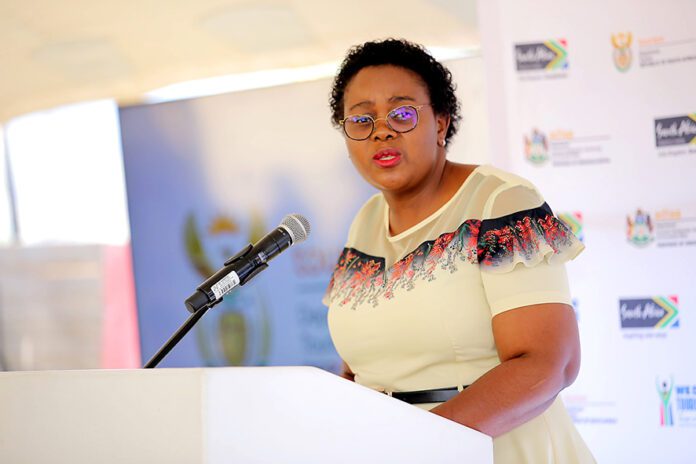Worried and jittery investors have been asking President Cyril Ramaphosa’s economic cluster ministers tough questions about his alleged intention to resign.
This has triggered a flurry of activity, which this week saw government bigwigs scrambling to assure local and international business that the country was not falling apart.
Sunday World understands that ANC head of economic transformation Mmamoloko Kubayi had her hands full as she tried to convince local and international investors the country was not experiencing a leadership and constitutional crisis.
This comes after the release of a report of a section 89 independent panel of experts led by retired chief justice Sandile Ngcobo, which found that Ramaphosa may have violated the constitution in his handling of the theft of foreign currency at his Phala Phala farm in February 2020.
It has emerged that Kubayi, who heads the economic cluster of government and is also human settlements minister, on Friday met investors to assure them that Ramaphosa was not going anywhere. “The investors also wanted to know what would happen in the event the president does resign, who will come in,” a senior government leader familiar with the situation told Sunday World.
News that Ramaphosa was resigning saw the rand plunge by over 3% and shares of companies such as Old Mutual, Ninety-One and Anglo-American dipped by 9%, 12%, % and 3% respectively in London.
Economic expert Azar Jammine said what happened to the rand was an indication of what would happen to the economy if Ramaphosa resigned or was recalled. “The perception of the markets is that Ramaphosa is experienced in business. He has been in the forefront of structural reforms, fighting corruption and reforming SOEs (state-owned enterprises). Perception is that he is doing his best although he is held back by other factions within the ANC.
“What makes the economy nervous is that should he be removed, a populist could emerge with policies that are not so popular, like forcing the implementation of the national health insurance, basic income grant and nationalisation of the Reserve Bank. When that happens the Reserve Bank can be forced to print money,” he added.
Black Business Council CEO Kganki Matabane said the economy could not afford to have another disruption and uncertainty.
“We urge all the roleplayers to resolve the impasse as soon as possible, in the interest of the country, in a way that it doesn’t affect the constitution and the rule of law. We have solid democratic institutions and we have been here before, but those institutions remain resilient. We will survive as the country,” he said.
Business Unity South Africa said the contents of the panel report constituted a “significant crisis” for the country and posed high risks that would see further erosion of confidence in the country.
“Business needs policy and political certainty, with a capable government that can fulfil its governance role ethically and efficiently. All of this has been lacking in SA and ongoing efforts to address these will be negatively impacted by the uncertainty and crisis created by the contents of this report,” the organisation said.
The last time the country experienced political uncertainty that led to economic da age was in December 2015 when former president Jacob Zuma unceremoniously removed then
finance minister Nhlanhla Nene and replaced him with Gupta acolyte Des van Roooyen.
Zuma was forced to appoint Pravin Gordhan in a matter of days after it emerged that his initial appointee would lead to possible economic collapse.
For more business news from Sunday World, click here.
Follow @SundayWorldZA on Twitter and @sundayworldza on Instagram, or like our Facebook Page, Sunday World, by clicking here for the latest breaking news in South Africa. To Subscribe to Sunday World, click here.



